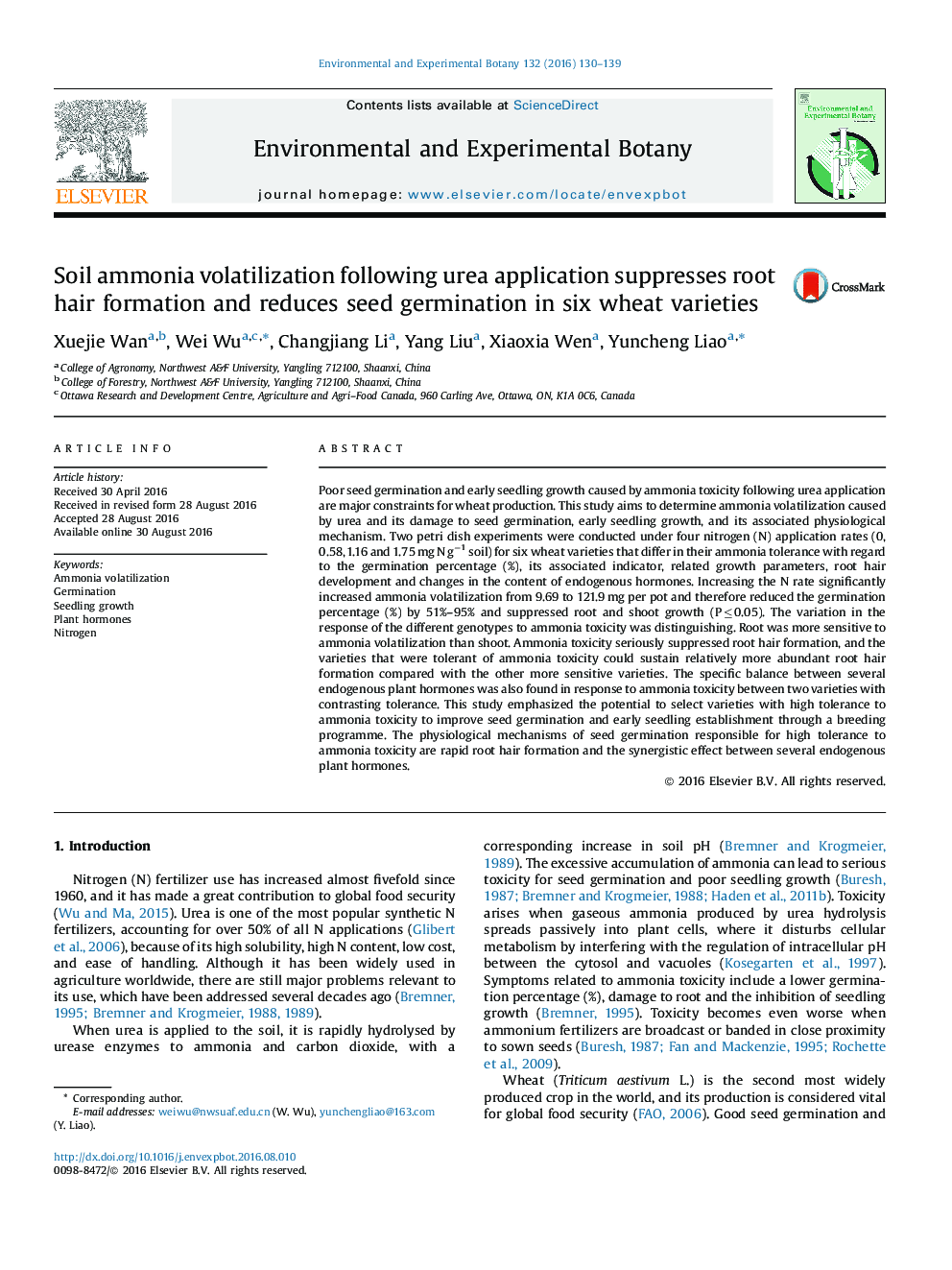| کد مقاله | کد نشریه | سال انتشار | مقاله انگلیسی | نسخه تمام متن |
|---|---|---|---|---|
| 4554052 | 1628045 | 2016 | 10 صفحه PDF | دانلود رایگان |
• Ammonia toxicity significantly inhibited root hairs formation.
• Root was more sensitive to ammonia toxicity than shoot.
• Four endogenous plant hormones were evidenced in response to ammonia toxicity.
Poor seed germination and early seedling growth caused by ammonia toxicity following urea application are major constraints for wheat production. This study aims to determine ammonia volatilization caused by urea and its damage to seed germination, early seedling growth, and its associated physiological mechanism. Two petri dish experiments were conducted under four nitrogen (N) application rates (0, 0.58, 1.16 and 1.75 mg N g−1 soil) for six wheat varieties that differ in their ammonia tolerance with regard to the germination percentage (%), its associated indicator, related growth parameters, root hair development and changes in the content of endogenous hormones. Increasing the N rate significantly increased ammonia volatilization from 9.69 to 121.9 mg per pot and therefore reduced the germination percentage (%) by 51%–95% and suppressed root and shoot growth (P ≤ 0.05). The variation in the response of the different genotypes to ammonia toxicity was distinguishing. Root was more sensitive to ammonia volatilization than shoot. Ammonia toxicity seriously suppressed root hair formation, and the varieties that were tolerant of ammonia toxicity could sustain relatively more abundant root hair formation compared with the other more sensitive varieties. The specific balance between several endogenous plant hormones was also found in response to ammonia toxicity between two varieties with contrasting tolerance. This study emphasized the potential to select varieties with high tolerance to ammonia toxicity to improve seed germination and early seedling establishment through a breeding programme. The physiological mechanisms of seed germination responsible for high tolerance to ammonia toxicity are rapid root hair formation and the synergistic effect between several endogenous plant hormones.
Journal: Environmental and Experimental Botany - Volume 132, December 2016, Pages 130–139
